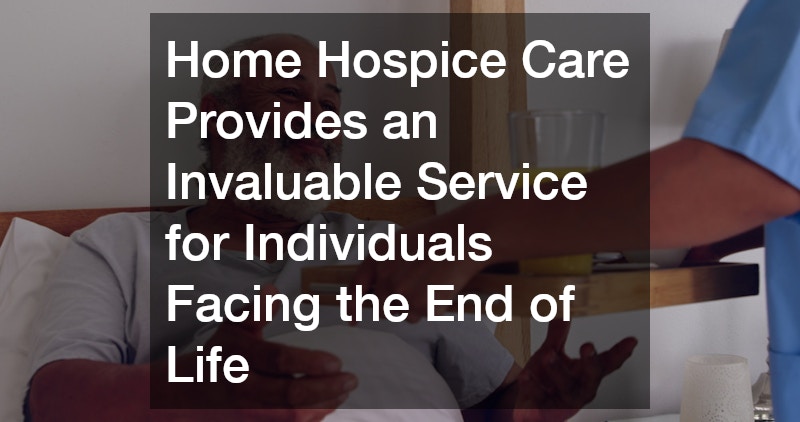Facing a terminal illness is one of life’s most difficult challenges—for both patients and their families. In such times, comfort, dignity, and compassion become priorities over aggressive treatment. This is where home hospice care steps in, offering end-of-life support in a familiar, comforting environment. Home hospice care is a specialized type of medical care designed for individuals with a life expectancy of six months or less, focusing on quality of life rather than curative treatment.
The Philosophy Behind Home Hospice Care
At its core, home hospice care centers around the belief that individuals nearing the end of life deserve to spend their remaining days with dignity, surrounded by loved ones. Rather than attempting to cure an illness, hospice care aims to manage symptoms, reduce pain, and offer emotional, spiritual, and psychological support.
Care is typically provided wherever the patient calls home—be it a private residence, an assisted living facility, or a nursing home.
Hospice does not mean giving up hope. Instead, it shifts the focus from prolonging life at all costs to making each day as comfortable and meaningful as possible. It emphasizes patient choice and family involvement, encouraging open communication and shared decision-making throughout the process.
Who Is Eligible for Home Hospice Care?
To qualify for home hospice care, a patient must have a terminal illness with a prognosis of six months or less, as certified by a physician. Common conditions that may lead to hospice care include advanced cancer, end-stage heart or lung disease, late-stage Alzheimer’s disease, and other degenerative illnesses. It’s important to note that patients can live longer than six months and still receive hospice care, as long as their physician continues to certify that the illness remains terminal.
Hospice enrollment often happens when curative treatments are no longer effective or desired, and the patient, along with their family, opts for comfort-focused care.
The Hospice Team and Services Provided
One of the strengths of home hospice care is its team-based approach. Patients benefit from a coordinated group of healthcare professionals, each contributing unique expertise. This team typically includes:
-
Physicians who oversee care and manage pain and symptoms.
-
Nurses who visit regularly to monitor health, administer medications, and provide hands-on care.
-
Home health aides assist with daily activities such as bathing, grooming, and mobility.
-
Social workers who offer counseling and help with practical matters like advance directives or accessing community resources.
-
Chaplains or spiritual counselors who provide comfort aligned with the patient’s beliefs.
-
Volunteers who offer companionship, respite for family caregivers, and assistance with errands or light tasks.
These services are customized based on the patient’s needs and may include pain management, wound care, medication delivery, nutritional support, and guidance on what to expect as the illness progresses.
How Does Care at Home Work?
Home hospice care is structured but flexible, adapting to the unique needs of each family. After enrollment, a personalized care plan is developed and reviewed regularly. A nurse typically visits several times a week—or more often if needed—while other team members provide scheduled support. Many hospices offer 24/7 on-call services, ensuring help is always available in case of emergencies or sudden changes in condition.
All equipment necessary for comfort, such as hospital beds, oxygen, or mobility aids, is delivered directly to the home. Medications aimed at relieving symptoms are also provided, often through a local pharmacy affiliated with the hospice agency.
Families remain an essential part of the care team. Hospice professionals educate caregivers on how to provide hands-on support, offering guidance on everything from administering medications to managing emotional moments. This collaboration helps reduce stress and empowers loved ones to participate meaningfully in the patient’s final days.
Emotional and Bereavement Support
Home hospice care doesn’t stop at the moment of death. Bereavement services are an essential component, supporting families through the grieving process for up to a year or longer. Grief counseling, support groups, and memorial services are often available, helping survivors find comfort and connection as they navigate loss.
Spiritual care and emotional support during the hospice process also ensure that patients and families feel heard, respected, and uplifted during one of life’s most intimate journeys.
Home hospice care provides an invaluable service for individuals facing the end of life. By shifting the focus from curing illness to enhancing comfort and connection, it allows patients to spend their remaining time surrounded by the people and environment they cherish most. With a dedicated care team, comprehensive symptom management, and compassionate emotional support, home hospice care offers peace of mind during life’s most difficult chapter, affirming that even at the end, quality of life matters deeply.
.




